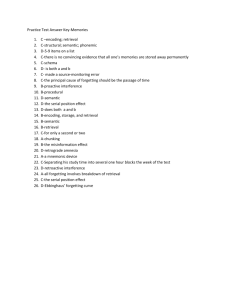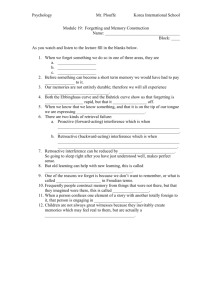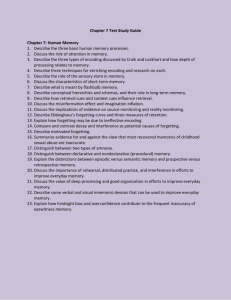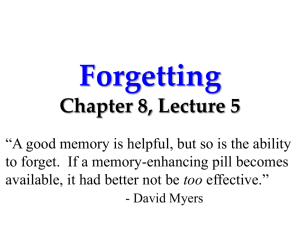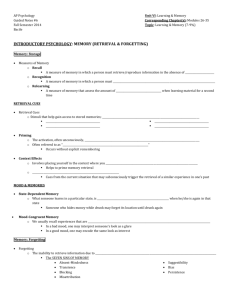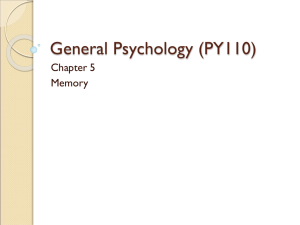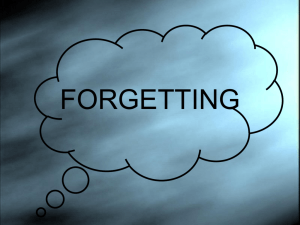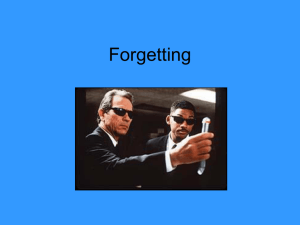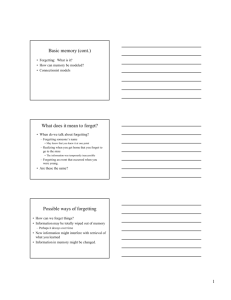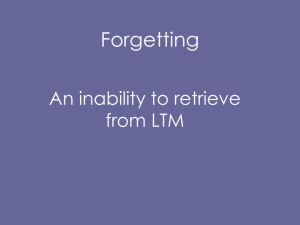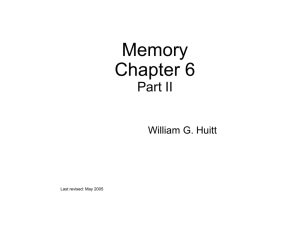Unit 4: Memory
advertisement
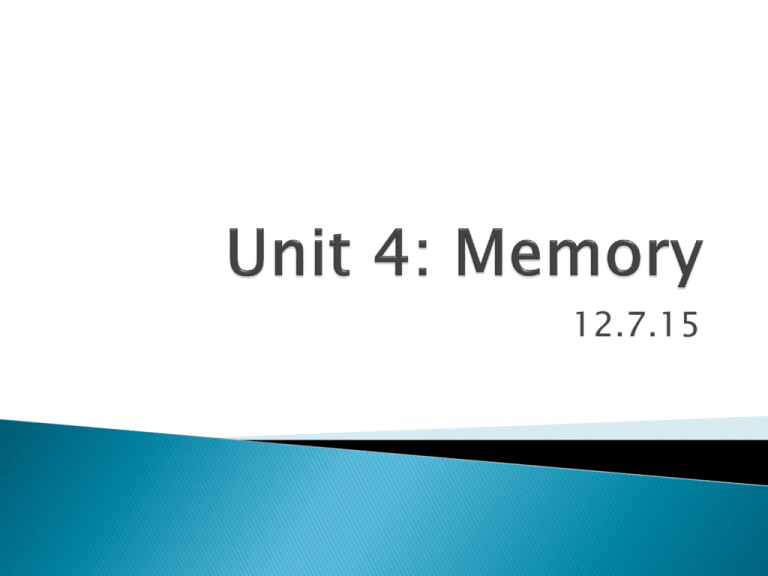
12.7.15 Forgetting Forgetting: an inability to retrieve information due to poor encoding, storage, or retrieval. 3 We cannot remember what we do not encode. o Because the info never enters long-term storage 4 5 Ebbinghaus showed the idea that much of what we learn we quickly forget with his forgetting curve. The course of forgetting is initially rapid, then levels off with time. 6 Bahrick (1984) showed a similar pattern of forgetting and retaining over 50 years. oPeople who had been out of school for 3 years had forgotten much of what they had learned, but after 3 years, their forgetting leveled off 7 Although the information is retained in the memory store, it cannot be accessed. Tip-of-the-tongue is a retrieval failure phenomenon. Given a cue (What makes blood cells red?) the subject says the word begins with an H (hemoglobin). 8 Learning new information may disrupt retrieval of other information. 2 Types Proactive Interference Retroactive Interference 9 The disruptive effect of prior learning on the recall of new info 10 The disruptive effect of new learning on the recall of old information 11 Sleep prevents retroactive interference. Therefore, it leads to better recall. 12 Motivated Forgetting: People unknowingly revise their memories. Culver Pictures Repression: A defense mechanism that banishes anxiety-arousing thoughts, feelings, and memories from consciousness. Sigmund Freud 13 Forgetting can occur at any memory stage. We filter, alter, or lose much information during these stages. 14 Episode 14: Remembering & Forgetting
